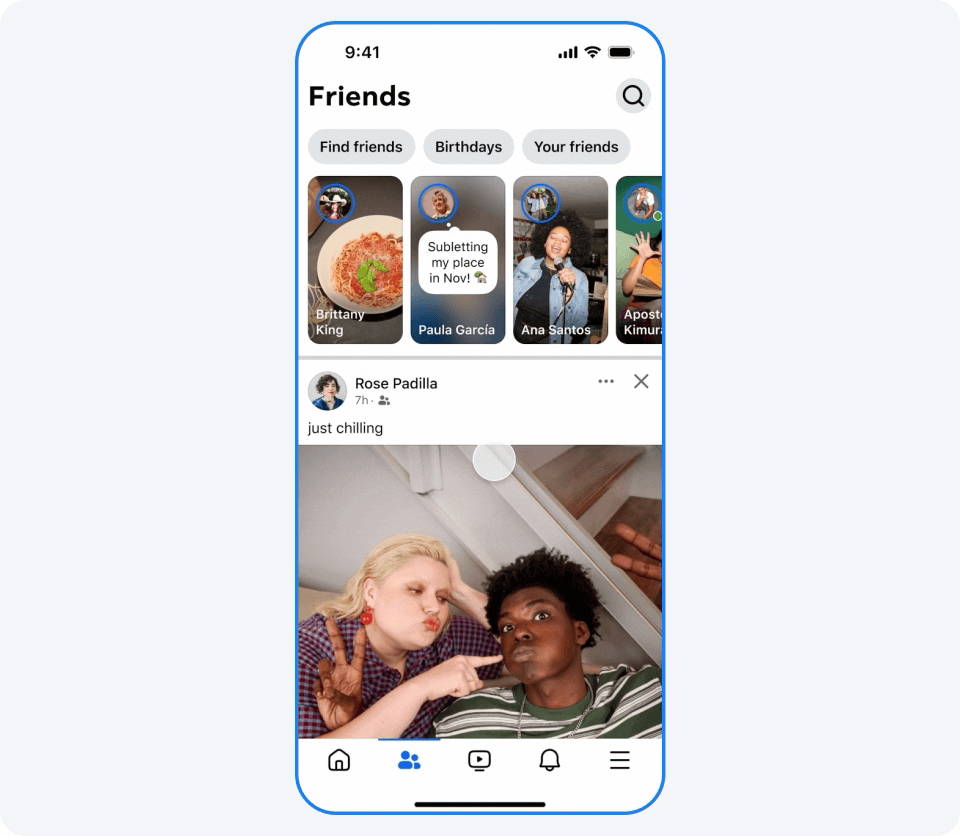What Is Social SEO? Why Property Marketers Should Care About Social Media
Local Memo: How Google is Rating AI Content, Meta Heads to Trial, Facebook and Instagram UI Updates

Summary
This week’s update covers how Google’s quality raters are now rating AI-generated content, Meta is facing the FTC in an antitrust trial, and Facebook/Instagram platform updates you don’t want to miss.
Google Quality Rater Guidelines and AI: An Update
The News Google has revised its Search Quality Rater Guidelines, with a major focus on content created using AI tools. Raters are now directed to give the lowest quality rating to pages primarily composed of AI-generated or paraphrased content that lacks originality and value.
From Search Engine Land, the key updates are:
- Google formally introduced the term “generative AI” in its guidelines, acknowledging it as a useful, but potentially misused, tool for creating content like text, images, and code.
- Spam-related sections were reorganized and expanded to cover new abuse patterns, including Expired Domain Abuse, Site Reputation Abuse, and others.
- A low rating applies when there’s minimal curation of reused content. The lowest is for pages with mostly copied or paraphrased material lacking effort or usefulness.
- Raters are instructed to give a Low or Lowest rating to pages that exaggerate the author’s expertise or mislead readers about the content’s purpose—even if not outright deceptive.
- New guidance warns against excessive or irrelevant content that clutters pages and distracts from meaningful material.
Why It Matters Google’s guidelines do not forbid AI content and are still focused on quality of content, whether or not written by AI. This update targets misuse of AI and automation, therefore raising the bar for quality content. For content creators, marketers, and SEO specialists, it’s important to understand that content needs real expertise, effort, and added value to rank well.
Meta Faces FTC Antitrust Trial
The News Meta is heading to court this week as the Federal Trade Commission (FTC) pushes forward with its effort to force the company to sell Instagram and WhatsApp. The FTC claims these acquisitions were part of a broader strategy to eliminate competition and maintain Meta’s dominance in the social media space.
The legal battle dates back to 2020, when the FTC first accused Meta of anticompetitive conduct. Although the initial lawsuit was dismissed due to a lack of evidence proving monopoly power, the FTC refiled a revised complaint that was later approved to proceed to trial.
Meta continues to argue that it faces strong competition from platforms like TikTok, YouTube, and Snapchat, making the monopoly claims unfounded. The company also insists that it improved Instagram and WhatsApp significantly through major investments, and says the FTC’s market definitions are flawed and overly narrow.

Source: Meta
Facebook Launches a “Friends” Tab
The News In an effort to revive the original spirit of Facebook—connecting people with their friends—the platform is launching a redesigned Friends tab in the U.S. and Canada. This new feature will show content only from your Facebook friends, including their posts, Stories, Reels, birthdays, and friend requests.
Previously used for friend suggestions and requests, the Friends tab is now a central hub for seeing what your actual friends are sharing. It’s part of a broader push to bring back the “classic” Facebook experience, with more features like this planned for later in the year.
Users can find the Friends tab in the navigation bar or Bookmarks section, and they have the option to pin it for easy access through their settings.
Facebook says these changes aim to make the platform feel more personal and social again.

Instagram Rolls Out New Repost Feature
The News Users can now reshare posts and Reels directly to their followers’ feeds—similar to the capability on other platforms, like TikTok and X. Previously, resharing was limited to Stories, but this update allows reposted content to appear like a regular post in a follower’s main feed.
This move reflects Instagram’s broader shift toward algorithm-driven discovery. While it’s still unclear how much visibility re-posted content will actually get, it could give users and creators another way to amplify posts and increase reach within the app. Instagram hasn’t shared further rollout details yet.
Sarahs.insta.secrets shared the following screenshot directly from Instagram:

Source: Sarahs.insta.secrets
Instagram Testing “Lockable Posts”
The News Instagram is experimenting with a new feature that allows posts to be locked behind a code, meaning users must enter a specific passcode to view the content.

Source: Design on Instagram
Though still in early testing—spotted only on Instagram’s own Design account—it shows potential for deepening audience interaction, creating exclusive experiences, and encouraging off-platform activity. There hasn’t been confirmation yet of a broader rollout, but it signals Instagram’s continued push to make content more interactive and customizable, driving additional engagement.
Why It Matters This could be used in a variety of creative and strategic ways—for example, promo codes for concert tickets or exclusive deals. The approach could even stretch across email marketing with users being emailed the code to be used on Instagram. Or, it could act as a lead generation tactic, “Enter your email or sign up for a newsletter to get the code.” If Instagram rolls it out widely, it could become a key part of any smart content marketing strategy.







